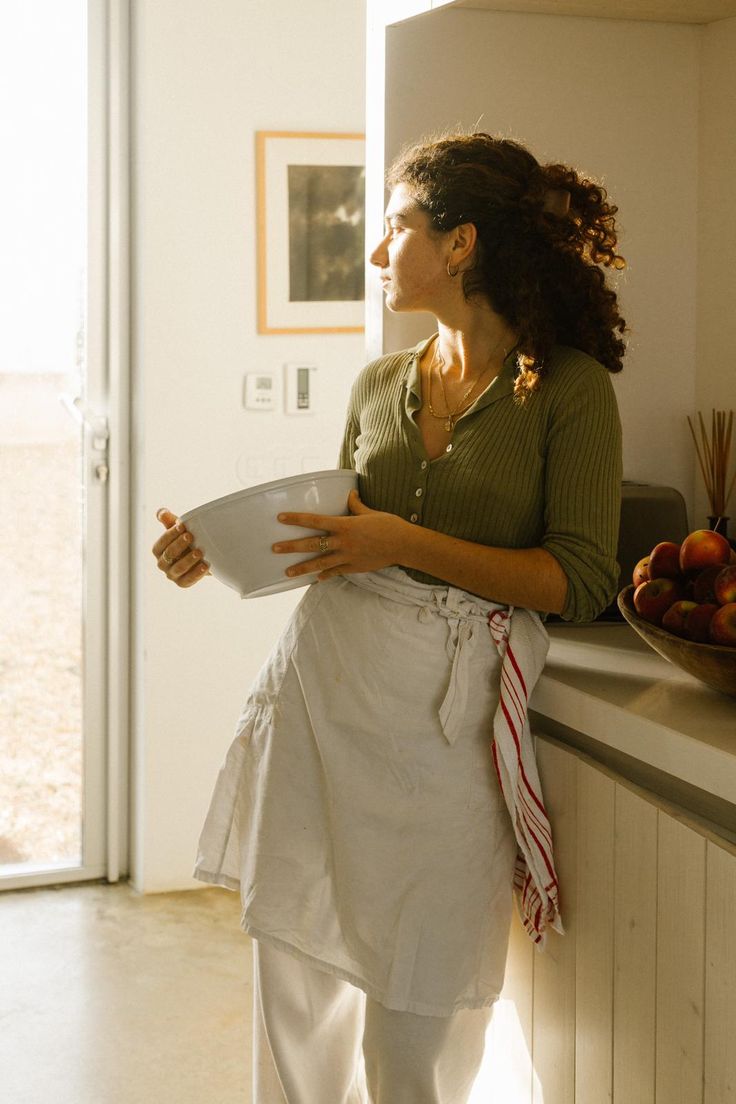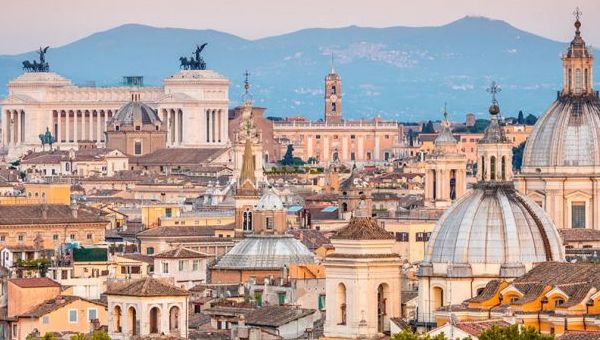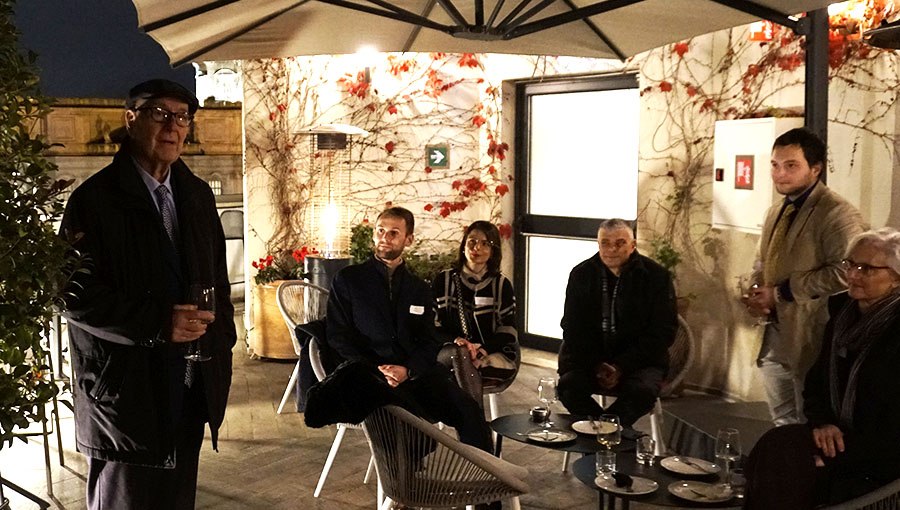The Critical Art of Cooking: Meet Alumna Viviana Calvagno
Viviana Calvagno is a JCU alumna from Viterbo, a city near Rome. She earned both a BA (2020) and an MA (2022) in Art History at John Cabot University. Through the years, Viviana was able to combine her artistic background with her passion for cooking. She is now a plant-based chef, an international cooking teacher, and the co-founder of Sol Creative.
Tell us about your experience at JCU. Why did you choose John Cabot University for both your BA and your MA in Art History?
I really wanted to have an international experience for my studies but, having grown up in a small town, I didn’t feel like I was ready to leave Italy. An American university in Rome was the perfect solution for me. I loved it so much that I chose JCU for my MA too, and I would choose it ten times over again. I had incredible professors from the Art History department who became my life mentors.

How did the program at JCU benefit you and prepare you for your professional future?
During my studies at JCU, I was really challenged in my way of thinking. It went beyond the field of study itself. It never was a matter of following a straight line but rather being able to see and – as Professor Inge Hansen always says – to analyze the context. And when you are studying so many artistic images and situating them in a political and cultural context, you end up using this ability in your own life also. I think my biggest take-away from my studies is this mental agility, besides a solid knowledge of art history. I gained a critical approach that I honestly don’t think I could have ever gotten anywhere else. In addition, the research skills that I have learned at JCU have allowed me to expand my knowledge in other areas.
What was your MA thesis about?
Professor Sarah Linford was the advisor for my thesis, which was titled, “The Land of Chickpeas. Baruchello Agricola Cornelia and Post-humanism.” It dialed into the examples of Italian artists in the 1960s and 70s engaging with radical political acts related to food and agriculture. These acts are still relevant today when looking at how we relate to food and nature. The main subject of my research was the artist Gianfranco Baruchello, who in the 60s decided to leave Rome and go live in the countryside to start a farm, which he called Agricola Cornelia. He wrote extensively about the farm as he considered it a piece of art in itself.
Was that when you first began connecting your art history background with your passion for cooking?
Yes. Cooking was the easiest way for me to understand food on a practical level. I have always loved cooking for my friends and enjoyed exploring food on an ingredient level. So rather than working in a restaurant, I have chosen to cook in contexts such as retreats, sailing trips, and private catered art events. But I always felt like there was something missing, which, as it turned out, was the critical aspect of what I was doing, coming straight from my education.
Now I am teaching international students at the Borromini Institute here in Rome. I am teaching classes on Italian culture and the history of food. I realized that teaching and researching the historical context of food is where I really feel fulfilled.
What is something that you teach your students that they find surprising?
They are amazed to learn that Italian food culture is a very recent phenomenon, which developed with the economic boom in the 1950s and 60s. They also believe that the Mediterranean diet is lavish and consists mainly of prosciutto and mozzarella. In reality, Italian food culture is a very poor one, coming from agricultural roots. There is always that initial shock, especially for foreign students who have a very specific imagery of Italian eating habits perpetrated by the media.
Recently, you were featured in an article in the French magazine Marie Claire about the event “Lettera al mio corpo” (Letter to my body) in Milan, where you gave a workshop. How did you end up working at this event and what was your contribution to it?
The event “Lettera al mio corpo” was organized by friends of mine from the independent magazine Mulieris. It consisted of workshops led by women, on food, movement, psychology, and photography as ways to delve deeper into the image we have of our own bodies and how much it is influenced by society, external narratives, and our own self-observation. The goal of the workshops was to deconstruct this way of thinking. My workshop was not about cooking, though: we explored ways to deconstruct our knowledge of what we think is healthy, and how we take care of our own bodies.
The workshop was followed by a very interesting conversation with the people attending. I heard different perspectives and approaches towards food. I noticed that there is no middle ground: our relationship with food is often perceived as either “being on a diet” or “not being on a diet.” For our society, people are either obsessed with food or they simply eat to feed themselves. They often do not do that critical work, which is what we did during the workshop.
You are also the co-founder of Sol Creative. Tell us about this project and your role in it.
We started Sol Creative during my undergraduate studies, when I was working at Villa Lena, an artist residency located in the Tuscan countryside. That is where I met lifelong friends and my business partners. Sol Creative consists of five-day long retreats with creative workshops. Each one of us hosts a different class: I cook, Venetia Berry holds painting and ceramic classes, Gina Spinelli teaches yoga classes, and Annalisa Ferrante takes care of the logistics, coordination, and business development. We change the location every time, and we rent the facility that can host us. We recently had one in Portugal, and I think the next one will be in Sicily.
What’s next?
I will be moving to Sicily soon because I will be working at the Anna Tasca Lanza cooking school, a historic mansion near Palermo that was turned into a research center on Sicilian food heritage. What the center does is extremely challenging because it effectively promotes a traditional approach to food production, agriculture, and shepherding. This supports slow practices in rural Sicily, as well as internationally.
I would like to continue to study food culture and further my academic education in the future, but for now I am very excited about this new opportunity!





